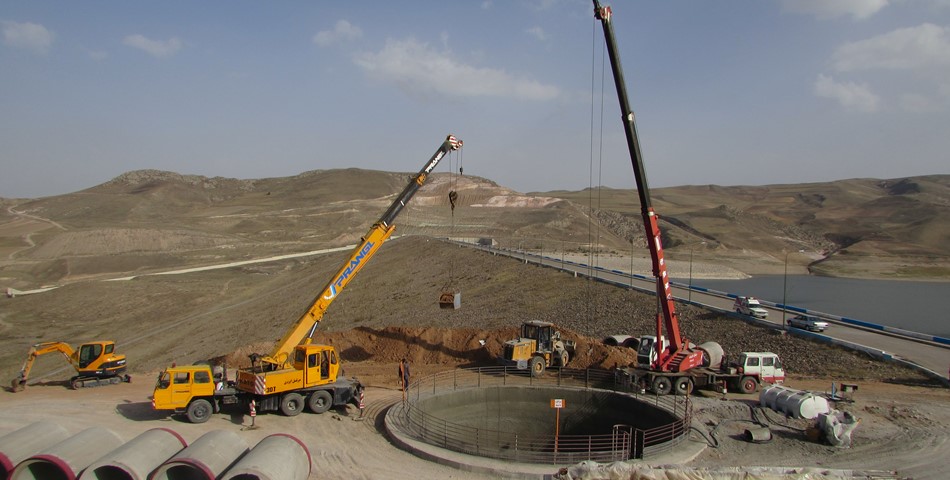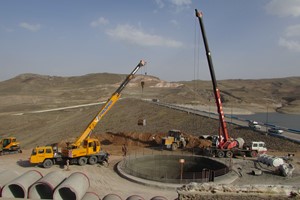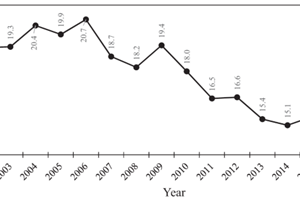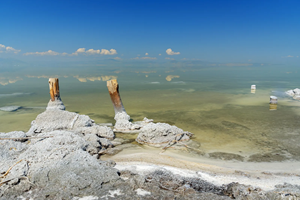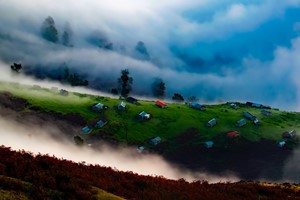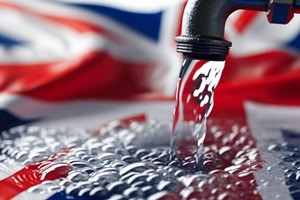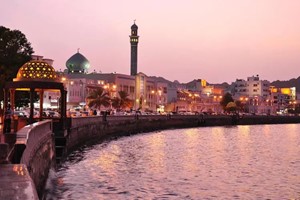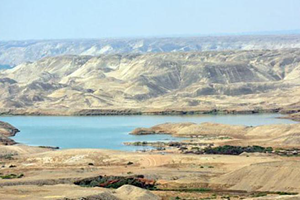Lack of water resources and providing safe water has always been a serious challenge in the MENA[1] region, where, it has become more and more difficult, regarding climate change and global warming. Dams and other water supply facilities, water storages, and water transmission pipelines have been considered as the main solution for communities and play a vital role in water resource management.
Ardabil Dam was constructed in 2004 in the north-west of Iran on the Yamchi River to develop agricultural areas and to provide a small portion of Ardabil drinking water.
In recent years, the rising number of inhabitants and the prospect of growth rate in the future has led to a growing allocation of the drinking water sector of the dam. Therefore, the client (Ardabil Regional Water Authority), began to seek methods to increase drinking water capacity and managing agricultural water supply. In the meantime, issues important to potable water quality, including thermal stratification in the reservoir of the dam, were addressed.
Bandab Consulting Engineers, as the project consultant, proposed both short-term and long-term solutions. In the short-term plan, "Floating water intake and pumping station" were put on the agenda which consists of 4 floating pump stations, each with a capacity of 250 l/s. The variable water level in the dam reservoir (with a minimum range of 30 meters) was the most significant challenge in both the design and operation stages of the plan. Stabilizing the transmission system as a whole (due to winds with an average speed exceeding 30 m/s), while introducing enough flexibility of the pipes, was the next toughest challenge.
"Intake with shafts and tunnels" has been considered as the long-term plan. This plan constitutes a vertical shaft and water tunnels. Also, the advantages of this plan are building a novel and independent way of providing drinking water which increases system reliability, technical and operational feasibility, low operating expenses, and so on. In this plan, water is drawn from high levels of the dam reservoir and transferred downstream through four water conduit each 900mm in diameter dug in the left abutment of the dam and connected to a vertical shaft with a diameter of 9 meters and a depth of 52 meters and thereafter through water pipe with a length of 520 meters. Furthermore, the design of the shaft structures has been implemented according to ACI[2] regulations and USACE[3] instructions. Also, the pipe jacking method has been employed to execute water pipings. This plan has made it possible to increase the water capacity up to 1600 liters per second on a regular basis, and up to 2400 liters per second in the case of emergencies. Currently, after the implementation of this plan, the quality of the water has noticeably improved, the costs of water pumping have been reduced, and also a significant part of the Ardabil drinking water demands has been satisfied.
Bandab Consulting Engineers were established in 1981 as a private joint-stock company. Presently, Bandab has a technical department with more than 300 engineers and technicians engaged in engineering service and construction supervision. To achieve our ultimate goal and enhance our collective professional expertise, we have established close cooperation with business colleagues both nationwide and worldwide to provide a comprehensive consulting and engineering service in the field of dam and hydropower projects, water transmission, distribution networks, reservoirs, treatment plants, irrigation and drainage networks, sewage systems, river engineering, project management, development of water resources, surface water collection and disposal from conception to completion, inter alia, feasibility study, basic design, front end engineering, detail design, quality assurance, quality control, and construction supervision.
[1] Middle east and North Africa
[2] American Concrete Institute
[3] United States Army Corps of Engineers
Bandab Consulting Engineers



